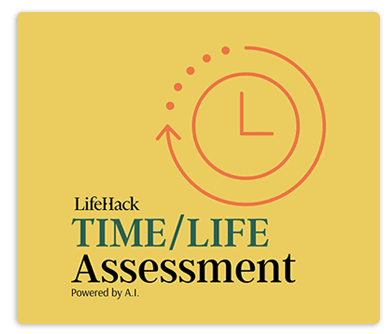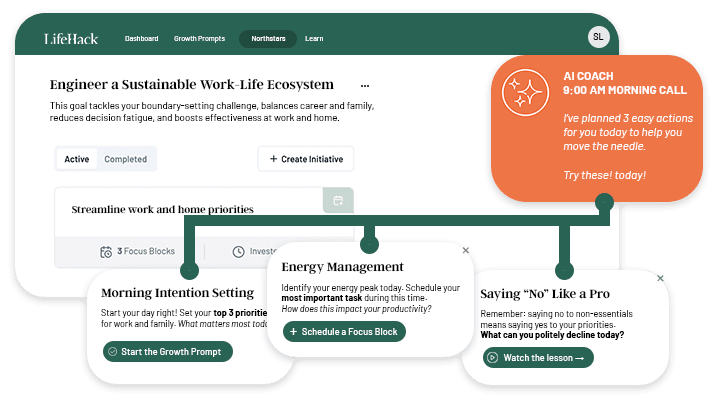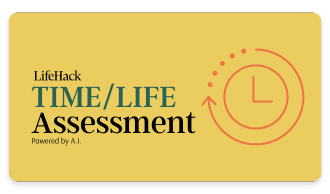Louise Delage. Remember her?
She was a 25-year-old social media star, who in 2016 gained over 50,000 likes in a couple of months with photos of herself at boat parties and exotic travel destinations. She seemed like a fun, free soul who was enjoying her life to the full – but the reality was very different. In fact, she was an alcoholic, and was actually being used as part of an anti-alcohol campaign created by French agency BETC.[1]
The campaign, known as "Like My Addiction," was designed to raise awareness of alcoholism among young people. The daily images of Louise appearing to enjoy her life with a drink in hand was the perfect set up. People loved her social accounts, and no doubt many people began to dream of emulating her lifestyle. When the reveal came, her social media followers were made to realize that they had failed to spot that Louise was actually a sad, struggling alcoholic.
It's an extreme example, but in the real world (as well as in the virtual world) we can easily be duped by people who are not what they first seem.
Don't Let Your Bias Blind You to the Truth
When meeting people for the first time, you're most likely to trust your instincts and judgements. However, this may not be the best way to proceed, as it's likely that you have some inherent biases.
Neglect of probability bias – many people find probability to be a difficult concept to deal with. This leads them to make black or white decisions. In other words, they choose either 0 percent or 100 percent. The problem with this type of decision-making, is that most things (and people) aren't just day or night. In reality, they are a mixture of things. So, a person who you may regard as 100 percent good, may in fact, have a negative side that you overlook due to bias.[2]
Illusory-correlation bias – this can be described as our tendency to erroneously connect an action and an effect. For example, you see a news story about a shark attack at a beach you are due to visit. Although the shark attack is the first in decades at that location, you immediately decide not to swim in the sea during your holiday. The odds of being attacked by a shark are incredibly low, and in reality, millions of people swim safely in the sea every year. Therefore, by staying out of the water, you've allowed the reported shark attack to cause an illusory-correlation bias in your mind.[3]
Biases can cause us to make faulty assessments of people. And this can be bad news for us.
Making the Wrong Judgement Can Be Harmful to You
Imagine that you interview someone to look after your young children for one night a week.
The 20-something lady appears calm, confident and easygoing. She also has childcare qualifications. As the safety and well-being of your children are paramount, you ask the lady for references from previous childcare work she has done. As if expecting that question to come up, she reaches into her handbag and takes out an envelope which contains two handwritten letters. These appear to be genuine reference letters from two of her previous employers.
As everything seems in order, and the lady appears qualified and friendly, you find yourself drawn to offering the part-time childcare role to her immediately. However, something inside stops you doing it. Instead, you say to the lady: "Thank you for your time today. I'll let you know tomorrow if we'd like you to start."
After the lady has left, you decide to do a quick bit of online research using the person's name and address. What you discover horrifies you. Credible news stories state that the lady had both of her children taken from her by social services due to her maltreatment of them. She was also prosecuted for the offence, and had served several months in jail!
Having discovered the truth about the lady, you rightly decline to offer her a position caring for your children. But just think how close you came to giving her the job. It's enough to give you nightmares.
As the above demonstrates, making the wrong judgement about a person can be bad news indeed.
Use These Seven Tips to Decide Whether a Person Can Be Trusted
Learning how to correctly determine if someone is trustworthy is easier than you may think. And to prove this to you, I've put together a list of seven simple tips for deciding whether a person should be trusted.
1. Observe the person from different perspectives and in different situations.
You don't want to judge a person too easily. By doing this, you won't be giving yourself enough time (or material) to form an accurate assessment of a person. Instead, try to observe the way a person behaves in different scenarios.
For example, someone at work may seem warm, approachable and super-friendly. However, you may see a different side to them when they go out drinking with friends on a night. Instead of the amiable person you see at work, they may become boisterous, arrogant – or even aggressive.
Unlock Your Time Potential: From Chaos to Control
Discover how to reclaim your time and transform chaos into productivity with our comprehensive Time/Life Assessment.
If you're ready to take control of your time and boost your efficiency, don't miss this opportunity to get a personalized analysis and action plan.

2. Analyze their behavior to see if it's consistent across different circumstances.
As discussed above, people can show different sides to their personality depending upon the situation they are in. A reliable, trustworthy person is more likely to demonstrate consistent behavior than someone with something to hide.
If you've ever watched those 'border control' TV programs, you'll notice a pattern. People with something to hide are often overly-friendly at first (when they are trying to smuggle something into a country), but when it appears they are about to get caught – they frequently express irritation and anger at the border control staff. An honest person is likely to show far less divergence in their emotions.
3. Take time to discover the "whole picture" of a person.
I'm sure you've heard the expression: Don't judge a book by its cover. Well, this is true not just for books – but for people too! You must take an adequate amount of time to reach a fair appraisal of a person.
As an example for you, remember a time when you moved into a new house or apartment. You may have introduced yourself to your neighbors, only to find that one of them seemed quite rude and abrupt. You took an instant dislike to them. But as future events would show, you were too hasty in your judgement. This particular neighbor turned out to be the most helpful. They received your mail, cleaned the entrance way to your properties – and even offered to look after your pets when you went on holiday. In hindsight, it appears they were just having a bad day when you first met them.
4. See if they trust others.
People who are easily suspicious of others, are the very same people you may not want to give your trust to.
This was suggested by a recent study of the behavior of online video game players.[4] The study found that those who were happy to cooperate and rely on other players were less likely to double-cross their partners in a game.
In other words, trust is a two-way street.
5. Ask yourself how much you know how they think.
Getting inside someone's head allows you to understand how they think and act. One way to do this is to listen closely to what they say. Our words often betray are true thoughts.
Criminal investigators frequently use this trick. When interviewing a suspect, they ask lots of questions, including some that are not specific to the particular case. They do this to see whether a suspect will reveal more about themselves than they might wish to do. A guilty person may try very hard to hide the truth. But in their efforts to appear innocent, they can often trip themselves up.
Once you discover a person's thought patterns, you'll be able to make a fair assessment of their trustworthiness.
6. Try to learn about their past.
The person standing in front of you may look like an angel – but what do you really know about them?
Before giving your trust to a person, it makes sense to learn about their past. Employers understand this well. Whenever they're hiring new staff, they're likely to have a rigorous recruitment process. This usually starts with a detailed look at a resume. If the resume fits the bill, then the candidate will be asked to come in for an interview (or series of interviews). The employer will probe the candidate about their qualifications and their work experience. If the candidate is lucky enough to be selected for the job, references will be required before any contract is signed.
While you don't need to be this thorough when assessing a person, it definitely makes sense to be aware of their past.
7. But don't strive to know 100 percent about a person.
If you do this, then you'll likely to never reach the stage of deciding on their trustworthiness.
Instead, aim to know a decent amount about a person. This may be 15 percent, 30 percent or even 50 percent. The exact percentage is unimportant. The key thing is to understand enough about a person to be confident in deciding whether they can be trusted. A good example of this, is when choosing an automotive technician. Their ad in the local newspaper may sound appealing, but do some research to see if their customers have been satisfied with their work.
We all have trust issues from time-to-time. It's just human nature. However, if you follow the seven tips above, you can super-charge your people assessment skills. This can help you to match up with trustworthy people, and to avoid the dishonest and undependable.
Featured photo credit: Stocksnap via stocksnap.io
Ready for a Goal Breakthrough? Unlock Your Personalized Strategy

Experience the power of a strategy tailored just for you.
Our personalized system provides:
- Custom-crafted action steps based on your unique situation
- Insights tailored to your specific challenges and strengths
- A personalized roadmap to turn your goals into reality
Tailored recommendations powered by smart analysis
Reference
| [1] | ^ | Adweek: Who Is Louise Delage? The Troubling Truth Behind an Overnight Instagram Success |
| [2] | ^ | Changing Minds: Neglect of probability bias |
| [3] | ^ | Brain Biases: The Illusory-Correlation Bias |
| [4] | ^ | Phys Org: Study explores trust in online gamers' psychology |
















































